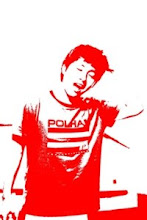The Righteous thief
As I was struggling to choose a right kind of legitimate domination by Max Weber and the person to write about, one person lighted the bulb of my thought. But the problem was that this person is one of the characters of the most famous piece of Korean literature, “the story of Hong Gildong.”
“Hong Gildong is a fictitious character in an old Korean novel, the story of Hong Gildong written in the Joseon Dynasty. The story was authored by Heo Gyun and is believed to have been written in the late 16th or early 17th century. Hong Gildong is famous for his robbing the rich to feed the poor, much like the English folk hero Robin Hood.” (wikipedia)
Hong Gildong was born as an illegitimate child. He wasn’t accepted from his father and his own family. According to Korean traditions, illegitimate children are not allowed to call their father as father. They weren’t capable to use the word “father,” but instead they used the word “master.” (wikipedia)
In this kind of poor background, his father tries to kill him after hearing the news from a shaman that Hong Gildong is cursed. Being surprised by his father’s action, Hong goes out into the world where he becomes a thief robbing rich and corrupt government official’s properties and shares it with the poor. (wikipedia)
For this cause, Hong Gildong becomes a hero within the peasant society. But in the other hand, he is wanted by the government for he is marked as the national traitor. So the government tries to capture Hong for many times but the government fails many times. Eventually, the government gives him a high ranking occupation to keep him from stealing and agitating the angry mobs. (wikipedia)
After being the war minister for some time, Hong realizes that the suffering of the people has not been vanished. So he tries to solve the suffrage of the people by searching the truth. On his way, he discovers a nation called Yul-do, which was oppressed by the demons. Eventually, he defeats the demons and becomes the king of Yul-do, reigning over the people of Yul-do as a good king and leader. (wikipedia)
This story is surely a traditionalist revolution. Before the Confucianism took a major place in the lifestyle of Koreans, there were freedoms to call father as a father. But after the Confucianism in Korea, many things changed. And in order to go back to the old good days, Hong Gildong revolts to the center authority which is the government governed by King Yunsangun.
So I believe that it is alright to say that Hong Gildong was a traditional leader who has shown legitimacy through traditions that Weber strongly imposes in his theory. I would admit that in a modernized world, it is truly hard or should I say it is nearly impossible for us to find a true traditional hero that would fit right into the category of Weber. But I sure do hope that there will be a decent traditional leader whose name will be worthy enough to be fit all the categories of traditional leader of Weber.
Hong Gildong. Retrieved Sept. 9, 2008
Retrieved from http://en.wikipedia.org/wiki/Hong_Gildong
Weber, Max (1978). Economy and society (G. Roth and C. Wittich).
Berkeley: University of California. (Originally published in 1922).

No comments:
Post a Comment